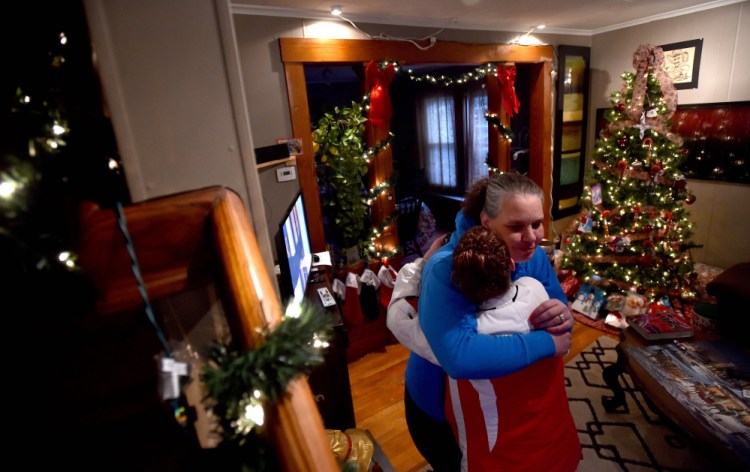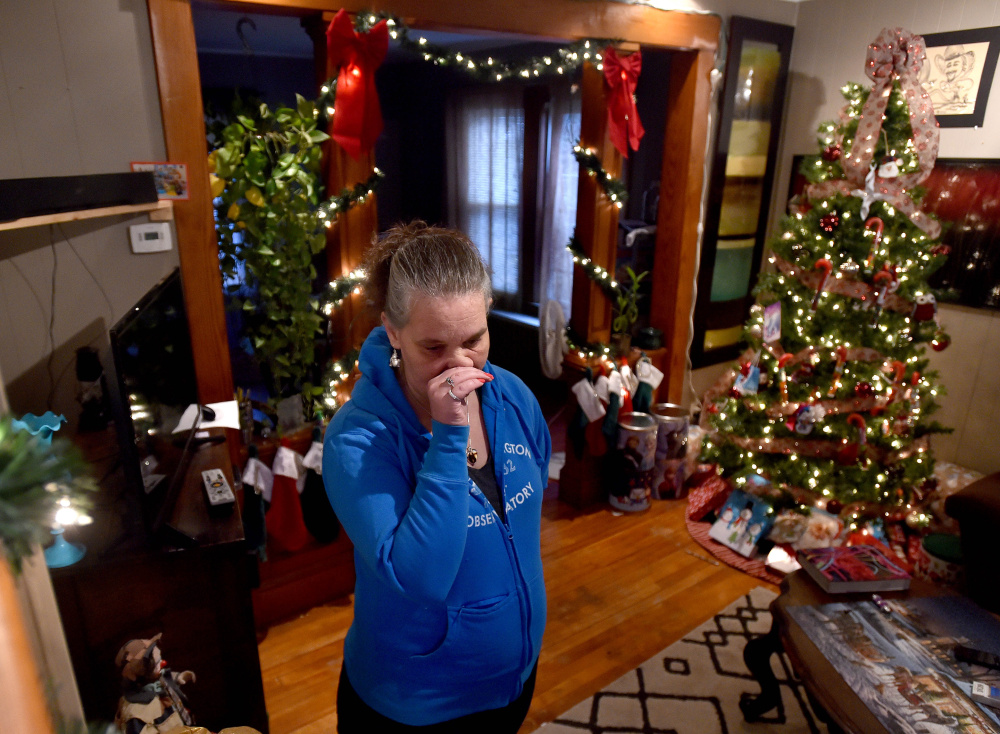Waterville native Michael Bowles was a healthy 37-year-old man who loved being active, in particular playing and coaching baseball. Now, one year after being diagnosed with stage four renal failure, doctors have told him his condition has taken an unexpected turn toward critical.
After leaving his family and friends in Maine to accept a job in Arizona just before Thanksgiving, Bowles was told this week that his condition has progressed to stage five renal failure, or end-stage renal failure.
“For some unknown reason the kidneys took a turn,” Bowles said Thursday by phone from Arizona. “I didn’t think, and the doctors didn’t think, that it was going to progress this fast after I moved out here.”
Bowles’ sister, Carrie Harvey, of Waterville, put it succinctly eariler this week in a telephone call to the Morning Sentinel. “All he wants for Christmas is a kidney,” she said with a sob.
Renal failure, commonly known as kidney failure, affects 26 million Americans, according to the National Kidney Center. Kidney failure occurs when the organ’s function of removing wastes and extra water in the blood stream and transferring them for removal from the body into the urinary system begins to decline, causing the toxins to build up in a person’s blood supply and damage the body.
There are five stages of kidney failure, with stage five — end-stage kidney failure — being the most severe. Symptoms of kidney failure vary depending on the stage. People such as Bowles present a sprawling list of debilitating symptoms. At this stage, with kidney function only in the 10 to 15 percent range, they can include anemia, headache, fatigue, weakness, nausea, muscle cramps, numb sensations in the extremities, itchiness, a change in skin color, difficulty breathing and high blood pressure, and the list goes on.
Bowles is baffled by the timing of his decline. Two weeks after starting his job at a school in Phoenix working with special-needs children, Bowles’ condition will make it difficult to go about daily life.
With stage five kidney failure, and no prospects for a kidney transplant, Bowles has been put on dialysis, which removes waste and extra fluid from the blood using a filter, according to the National Kidney Center.
After his initial hospitalization on Monday, Bowles said he has to remain in the hospital until a treatment schedule can be set up for his dialysis. He was scheduled to be out of the hospital by Saturday, but going forward his dialysis will force him to be in the hospital three days a week, four hours a day, to receive treatments that will allow his kidneys to function.
“(Dialysis) is a part-time job,” Bowles said.
The only hope Bowles has to be taken off dialysis is a finding a suitable donor for a kidney transplant, but finding a perfect match takes time. Bowles has been listed on the United Network for Organ Sharing’s Northeast regional list as seeking a kidney transplant since June. While he says his doctors are hopeful that he’ll find a replacement soon, he knows he might be in store for quite a wait.
“This is a reality I will have to accept until I can find a kidney,” Bowles said.
According to the director of the Maine Transplant Program at Maine Medical Center, Dr. John Vella, 50 percent of kidney failure patients will end up getting a kidney transplant.
Unfortunately, that means that the remaining 50 percent of patients will not. While people can die from kidney failure, the majority of patients who are in stage five and cannot find a organ donor develop other health conditions, such as heart disease, which ultimately causes their death.
However, Vella, said that because there are several routes to find donors, patients should remain hopeful they’ll find a suitable kidney. “In the meantime, the patient can be maintained through dialysis,” he said.
Vella said that of the 50 percent of patients who receive a transplant, 55 percent of them get kidneys from a deceased donor and 45 percent from a living donor.
Though it is more likely for patients to receive a transplant from a deceased donor, it often takes longer to find a suitable kidney this way.
Vella said finding a matching living donor is a quicker route to transplantation. A living donor can be a relative, a spouse, a friend or just a good Samaritan who is willing to function with one kidney instead of two.
Harvey, his sister, has been devoting all of her time since her brother’s recent hospitalization to help find him a kidney.
“We were hopeful he would have a kidney by now, and maybe if we’re lucky, he’ll find (a donor) for Christmas,” Harvey said. She has set up a gofundme page, “My Brother Needs a Kidney,” to help with Bowles’ expenses.
The option of a family donation for Bowles is out of the question because of a family history of diabetes.
Medical history and blood type are two of the most important things doctors must take into consideration when finding a suitable transplant. Patients with the blood type A tend to wait the shortest amount of time for a donor; while people with type O or type B, like Bowles, tend to have a longer wait, Vella said.
Donors also must be healthy, not having any condition that would predispose them for kidney disease, and be prepared for medical follow-up to gauge both short-term and long-term effects that can include everything from high blood pressure to kidney failure, according to the Johns Hopkins medical information website.
It’s important for donors to consider their decision carefully, according to giveakidney.org.
“Regardless of the need for kidneys, donation is not acceptable if the donor is put at excessive risk of harm, so every effort is made to minimize the chance of problems,” the site says. “Being a healthy person is not the same as being a suitable donor.”
Despite knowing that the blood type odds and other factors of finding a donor are not in his favor, Bowles is still hopeful, because aside from dialysis, hope is the only thing keeping him going.
“Getting a kidney would allow me to resume some resemblance of a normal life — to be active,” Bowles said.
On his latest update on his gofundme page, Bowles says his kidneys “have just about shut down and are no longer doing the job they’re intended to do.”
“It’s critical that a transplant be found and I’m hopeful that maybe someone sees this and passes it along and maybe … my Christmas wish will be fulfilled.”
Lauren Abbate — 861-9252
Twitter: @Lauren_M_Abbate
Send questions/comments to the editors.





Success. Please wait for the page to reload. If the page does not reload within 5 seconds, please refresh the page.
Enter your email and password to access comments.
Hi, to comment on stories you must . This profile is in addition to your subscription and website login.
Already have a commenting profile? .
Invalid username/password.
Please check your email to confirm and complete your registration.
Only subscribers are eligible to post comments. Please subscribe or login first for digital access. Here’s why.
Use the form below to reset your password. When you've submitted your account email, we will send an email with a reset code.